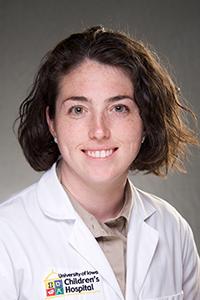
Turner syndrome (TS) is a karyotype disorder in which the sex chromosomes consist of an intact X chromosome and partial-to-complete loss of the other sex chromosome. TS includes a number of phenotypic features, including many that have variable expression. The degree of second sex chromosome loss explains the risk of some but not all TS features. Modifier genes are one possible explanation for TS features whose risk is not explained by karyotype. In this case, the modifier genes would be polymorphisms on autosomal chromosomes. This postulate served as the basis for a recent research study by Dr. Cat Pinnaro. Specifically, she sought to determine whether autosomal genes might influence the risk of cardiovascular malformations in TS. She focused on genes involved in pathways already known to impact cardiac development. The identified that specific variants in the CRELD1 gene were associated with risk of having a bicuspid aortic valve in TS. This study serves as proof-of-concept that modifier genes impact TS phenotype, and paves the way for future studies searching for additional modifier genes that might impact other aspects of phenotype in TS and other karyotype disorders. The work is published in the journal Human Genetics (pubmed link here).

